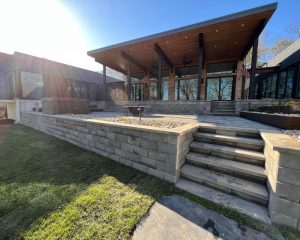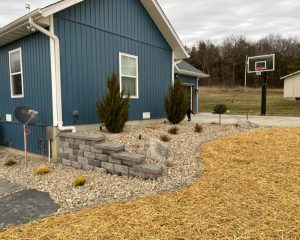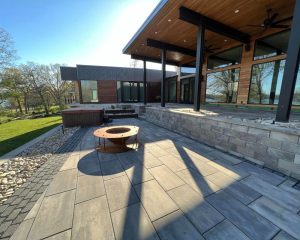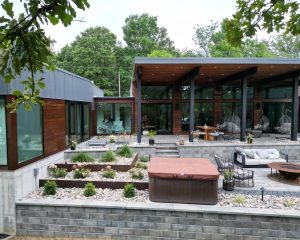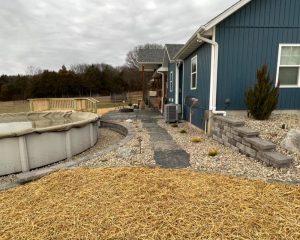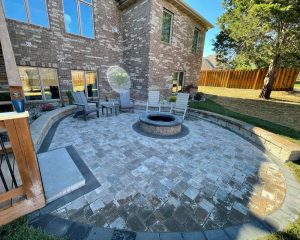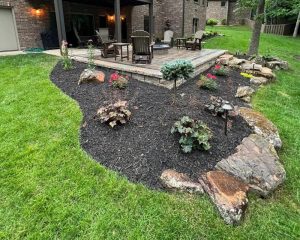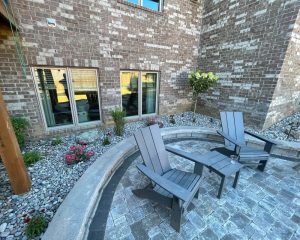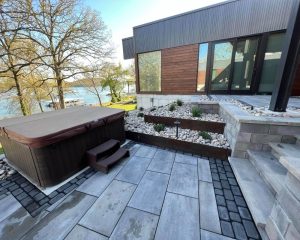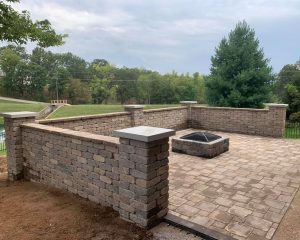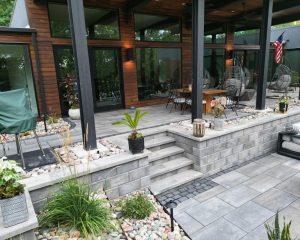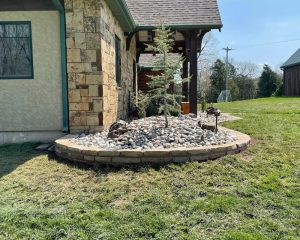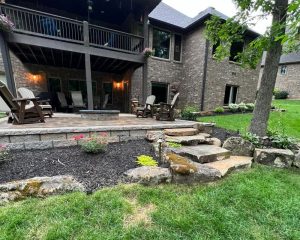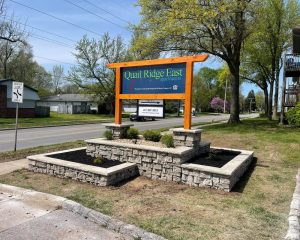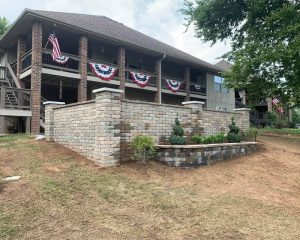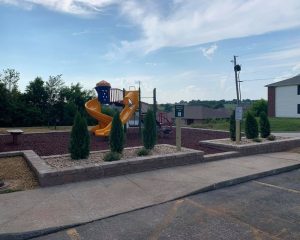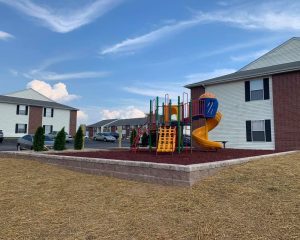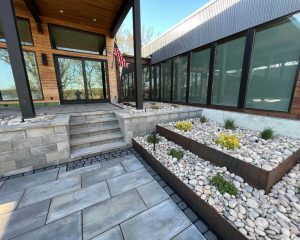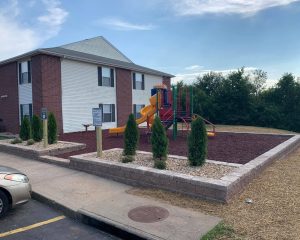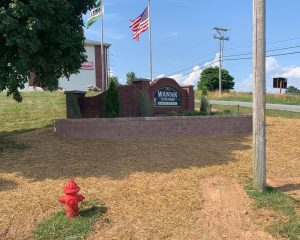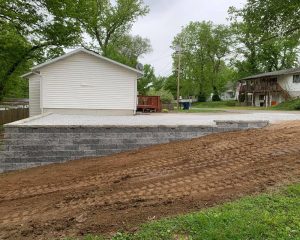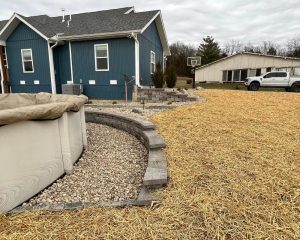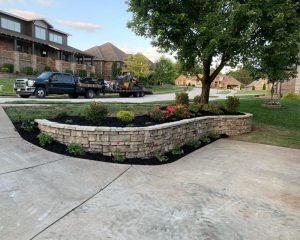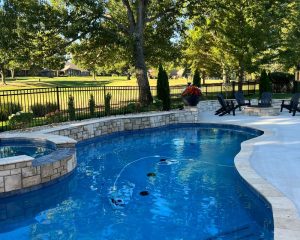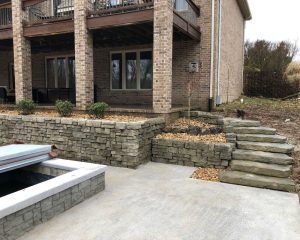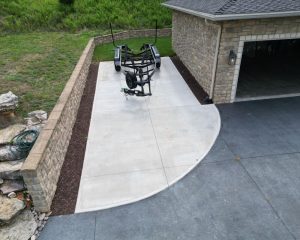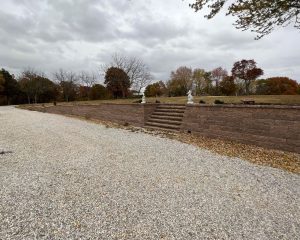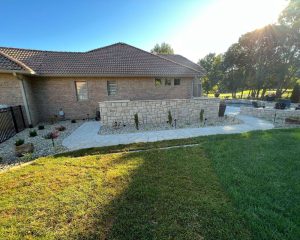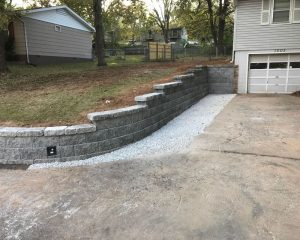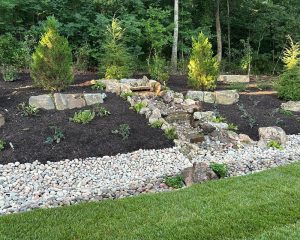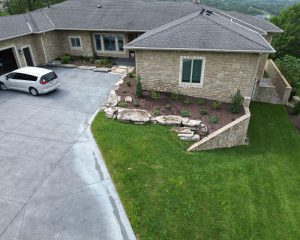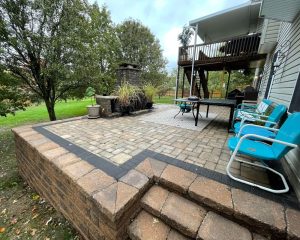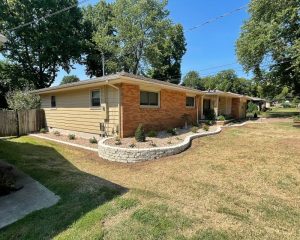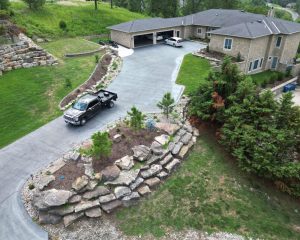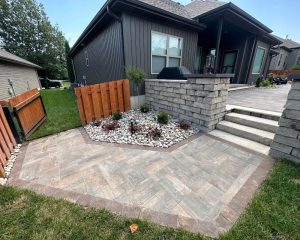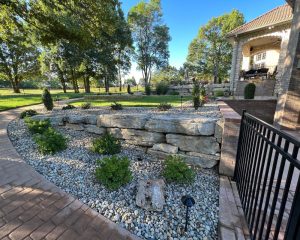Retaining Walls
We can build beautiful, functional, retaining walls
We Build, Repair, and Replace Retaining Walls
We are your Ozark, MO retaining wall specialists!
Incorporating retaining walls into your landscape design offers a multitude of benefits, particularly for properties with uneven terrain. The construction of a retaining wall transforms slopes into practical and attractive spaces. These walls not only prevent soil erosion but also provide a foundation for a variety of outdoor features. Whether you're looking to add a garden bed, a new lawn area, or carve out some space for a cozy patio, or additional parking, retaining walls offer a versatile solution. They can be built from various materials, including stone or boulders, brick, or blocks, to suit any aesthetic.
The Importance of Retaining Walls for Your Landscape:
- Are you facing challenges with soil erosion on your land?
- Is there an existing retaining wall on your property that requires repair or replacement?
- Do you wish to transform a sloping area of your property into a beautifully landscaped space?
- Are you keen on creating an inviting outdoor living area?
- Are you considering the addition of elevated garden beds to enhance your home or property's surroundings?
Hunter Hardscapess & Outdoor is a landscaping contractor based out of Ozark, MO and serving the surrounding area. We provide our services in Branson, Nixa, Republic, and Springfield.
We specialize in designing and building functional retaining walls for property owners looking to landscape their naturally sloped property. From a 60′ foot long curved block retaining wall to hold back earth around the edge of your home to larger, more complicated, retaining walls for your terraced property. The team at Hunter Hardscapess & Outdoor will be able to provide you with a retaining wall solution that will benefit your specific property.
Construction Of New Retaining Walls
We specialize in the construction of new segmented retaining walls. The benefits to segmented retaining walls are many. Segmented retaining walls are aesthetically pleasing, they offer design flexibility, they are economical, easier to install, and durable.
They are also pre-engineered, meaning the wall can be built to your project specifications without having to have an architect or engineer design the wall itself. We can build the wall to the engineering specifications and have a qualified engineer sign off on the project if the height or size of the wall requires it.
Retaining Walls & Building Permits in Ozark, MO
In most of Missouri (your municipality could be different) retaining walls that are under 3 feet in height generally do not require permits or design plans. There are some specifics that may or may not apply to your situation. If retaining walls are 3 feet in height or over than a permit is generally required. Any retaining walls over 6 feet in height will require a permit and additionally an engineered design to ensure the structure is sound. This information does not account for any covenants that might be on your property.
When we view your property we’ll be able to let you know any specific building codes that might apply to your circumstance depending on the height/length of your wall and what it’s specifically being installed for and whatever surcharges (weight) might be applied to the soil above and behind the wall.
Proper Drainage For Retaining Walls
We are often contacted by potential customers who have an existing retaining wall that has failed, it’s either falling down, bulging, or collapsing. One of the most common reasons for retaining wall failure is that the original wall was built with poor drainage in place.
Retaining walls are designed to hold back earth from erosion. This also makes them excellent at holding back water too. The water that builds up behind a retaining wall is referred to in the industry as “hydrostatic pressure” and the external force of the soil or fill held behind your retaining wall coupled with the weight of the water held behind it is often enough to seriously compromise the integrity of your wall which can lead to failures such as bulging and even a total collapse.
Well-built retaining walls must incorporate good drainage if it’s going to last for many years. Depending on the type of material being used to build your retaining wall there are a variety of ways to integrate sufficient drainage such as lateral drains, french drains, weeping drains, blanket drains and also the use of very granular soil or fill behind the wall can also work to disperse rather than hold the water.
Understanding Retaining Wall Surcharges
A "surcharge" when it comes to a retaining wall is the weight on top of or behind the wall. For example, if you're building a retaining wall to create a new parking area for a boat or an RV we need to consider the weight of the boat or RV and it's impact on the retaining wall.
If your wall is going to have a surcharge it must be built with this in mind if it's going to last. This would also include tiered retaining walls or retaining walls with a fence on top or any other weight other than the earth it's holding back.
Geo-grid is often used to provide extra tensile strength to each course of your retaining wall so it's anchored to the ground behind it. Proper use of geo-grid will ensure that your retaining wall will be built to last and won't collapse or buckle under the excess weight.
Failure to properly stabilize retaining walls is another very common failure.
What Materials Do We Use For Retaining Walls?
There are many different materials to build your retaining wall out of. Below are some of the more popular materials in our area because of their availability.
- Block retaining walls
- Natural stone retaining walls
- Large boulder retaining walls
How Our Retaining Wall Construction Process Works
When building a retaining wall on your property that is designed to hold back soil and earth from erosion there is very little margin for error so when required we work directly with engineers if your wall is over 6 feet in height. There are many pre-engineered systems we can use as well that can eliminate the need for detailed building plans.
- We start with our initial consultation.
- We determine how many feet of retaining wall you need.
- We determine the height of the wall and if a building permit or engineer will be required.
- We take into account any surcharges (weight) the wall might be exposed to.
- We consult with you on the materials you’d like your retaining built with.
- We’ll provide you with an accurate written estimate for the work.
The amount of work required to build a retaining wall can vary widely from project to project. The slope of your property, the amount of earth your retaining wall must hold back and the overall accessibility of your property will all contribute to the final cost. We’ll be able to offer you an accurate estimate only after a site visit.
Before & After Photos Of Our Work
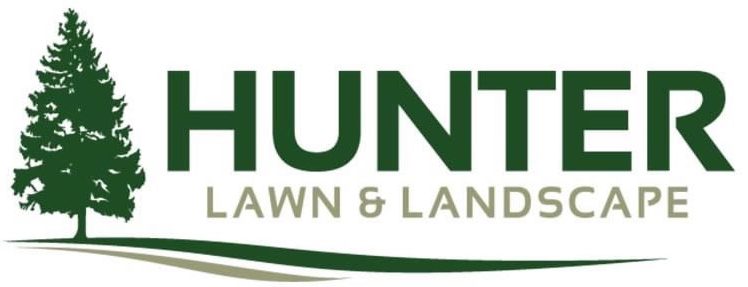
Slide The Green Vertical Bar Side To Side To See The Results Of Our Work!
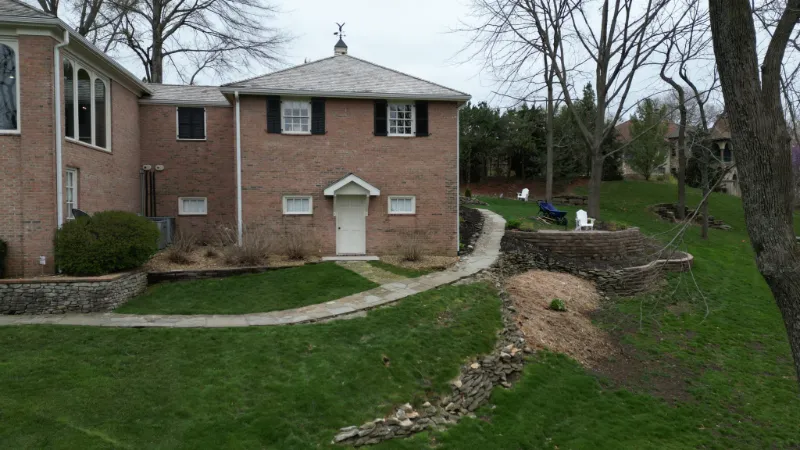
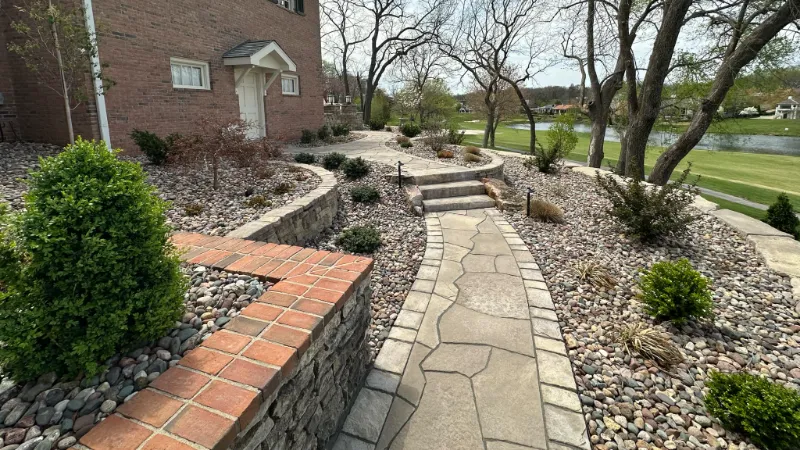
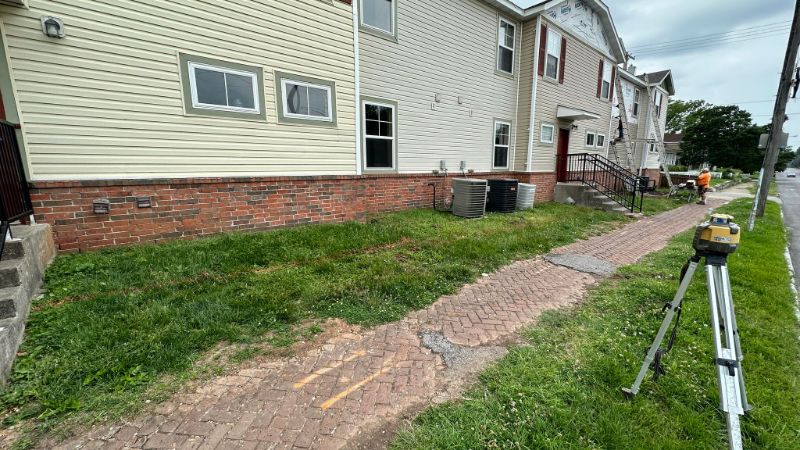
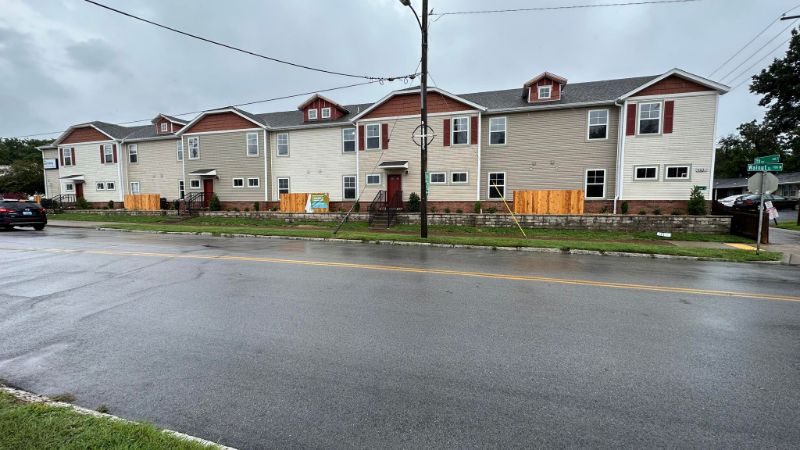
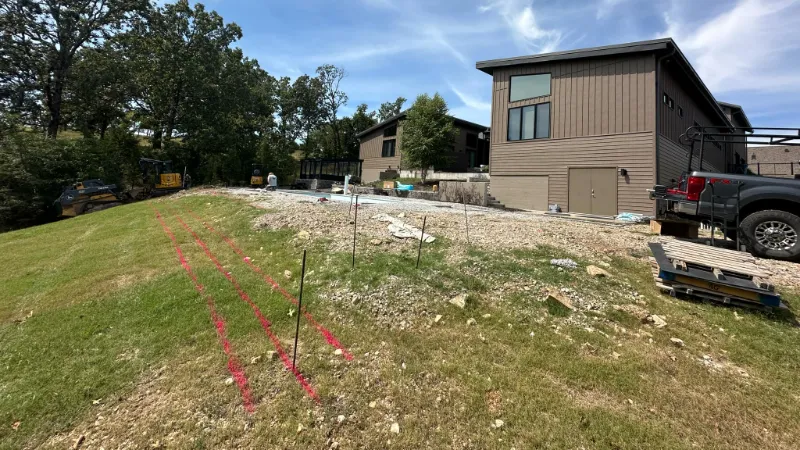
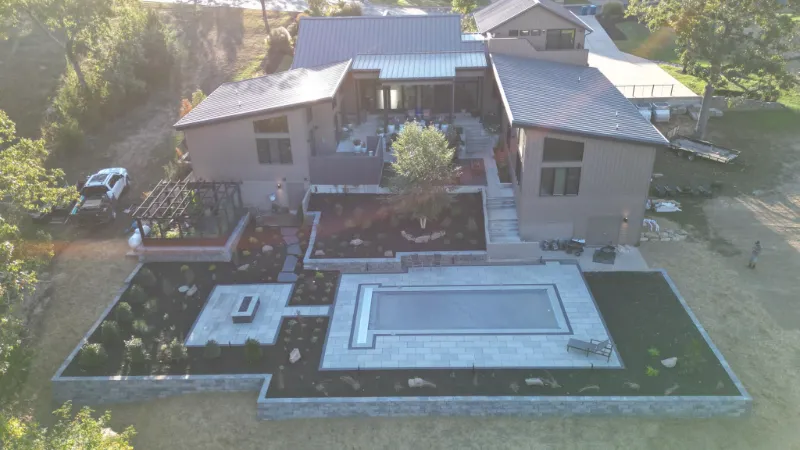
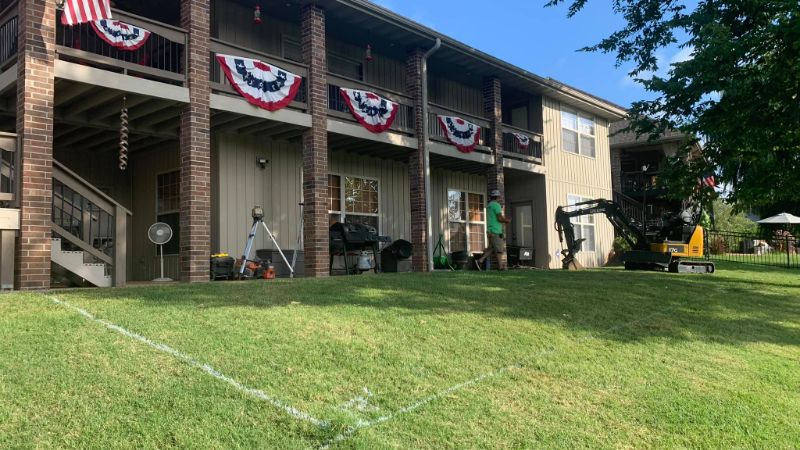
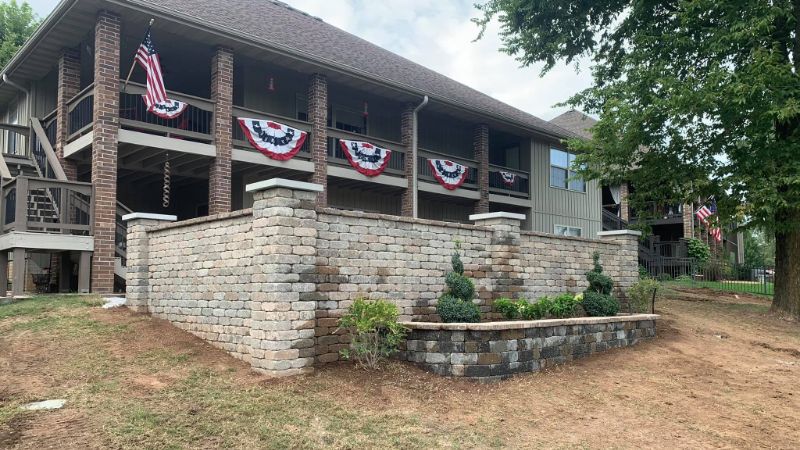
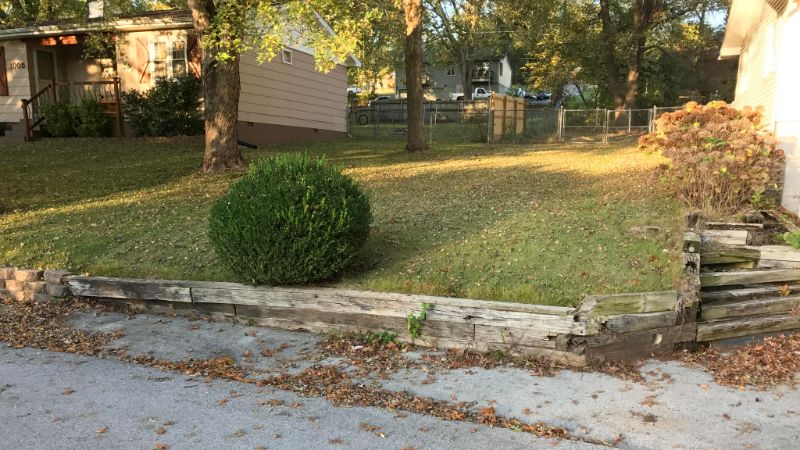
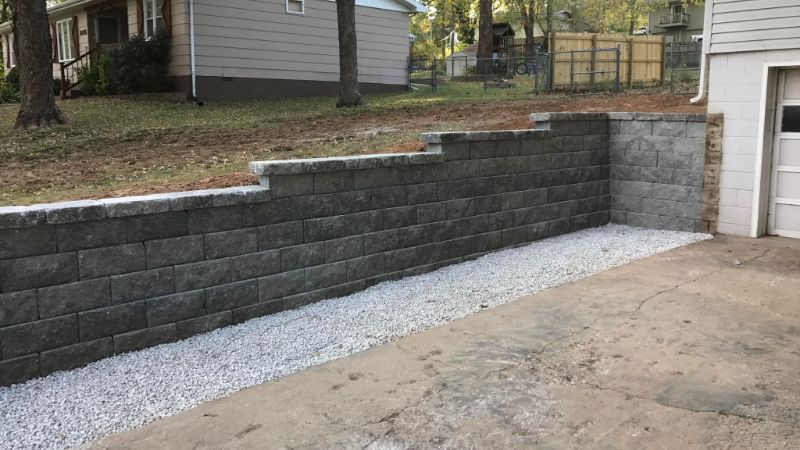
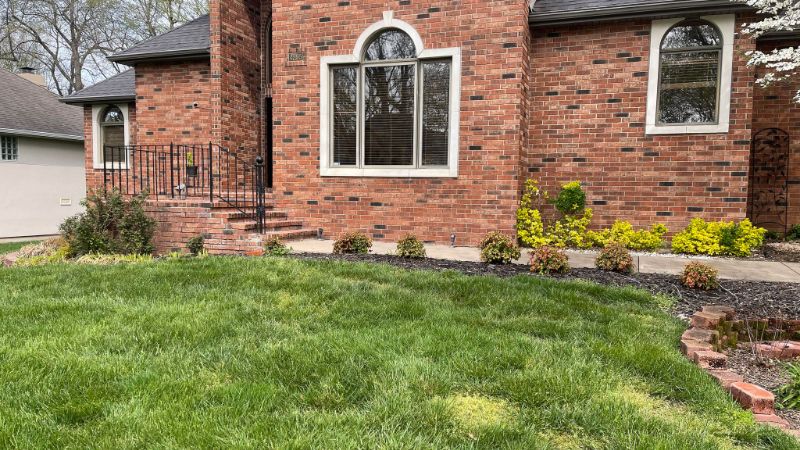
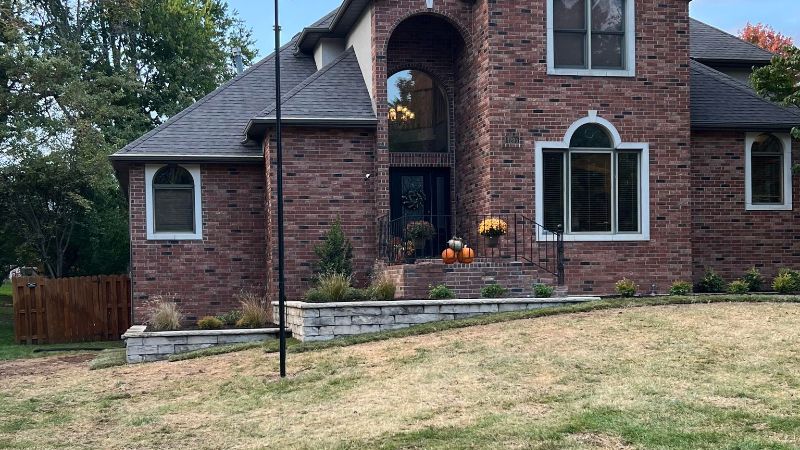
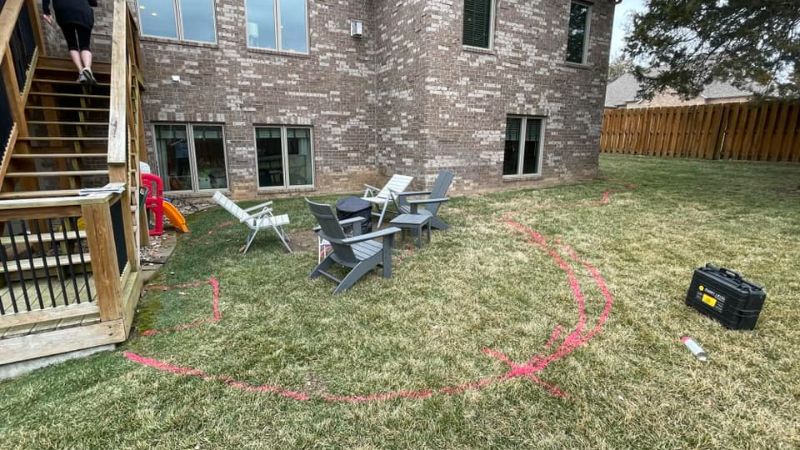
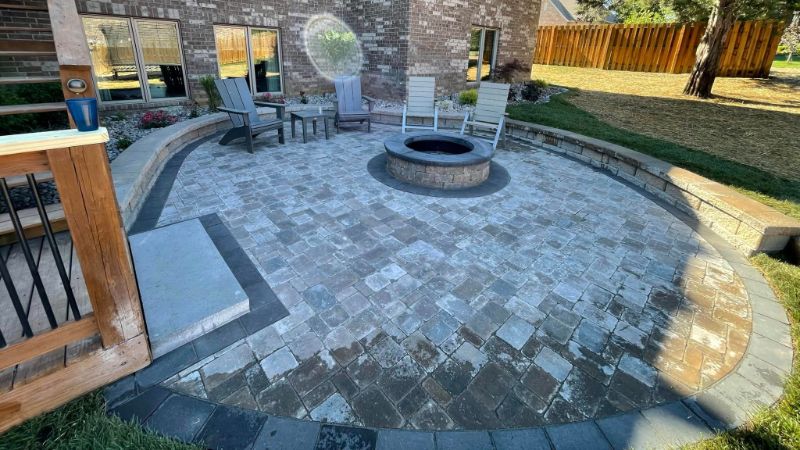
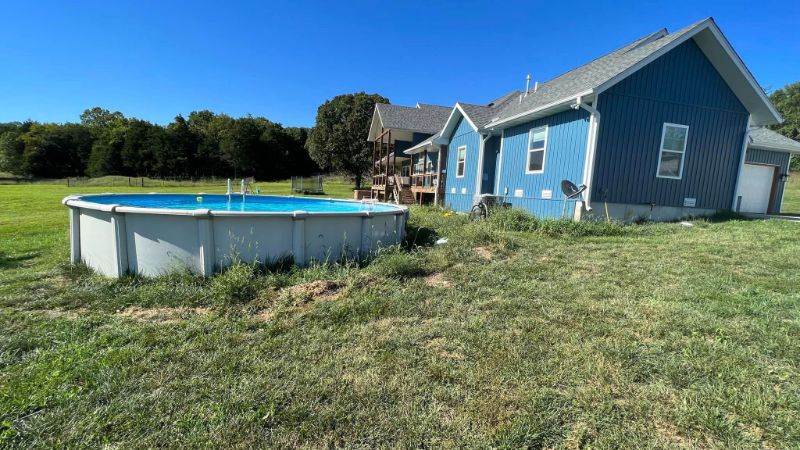
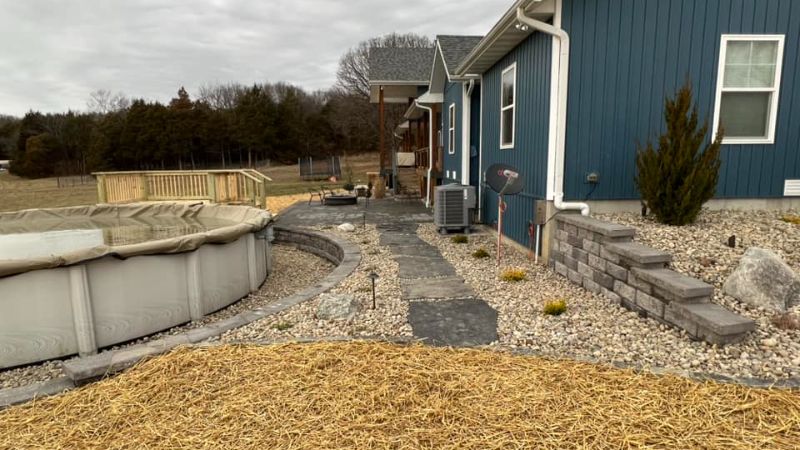
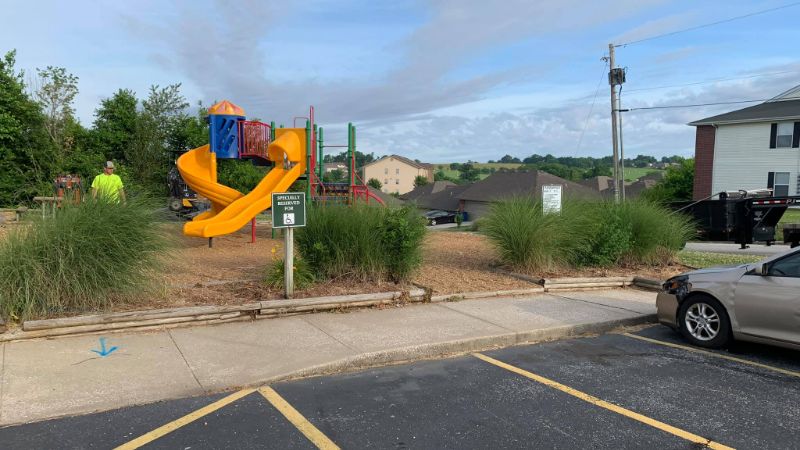
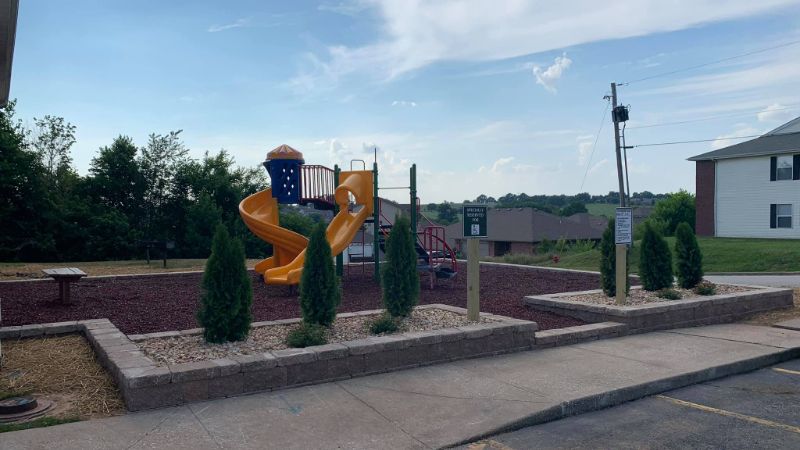
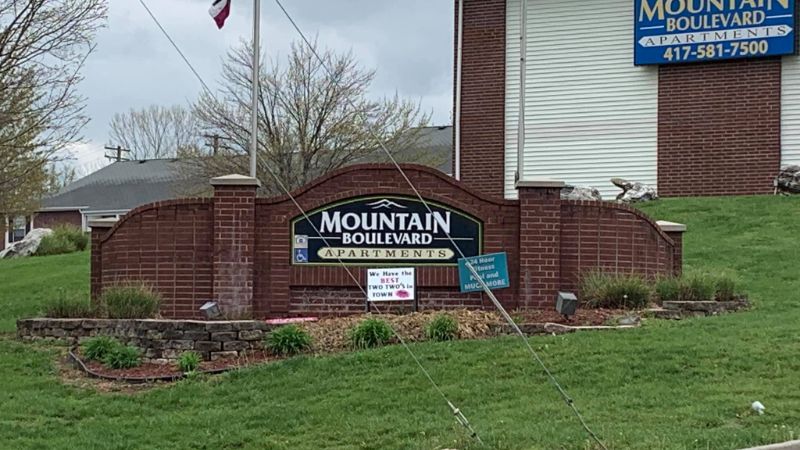
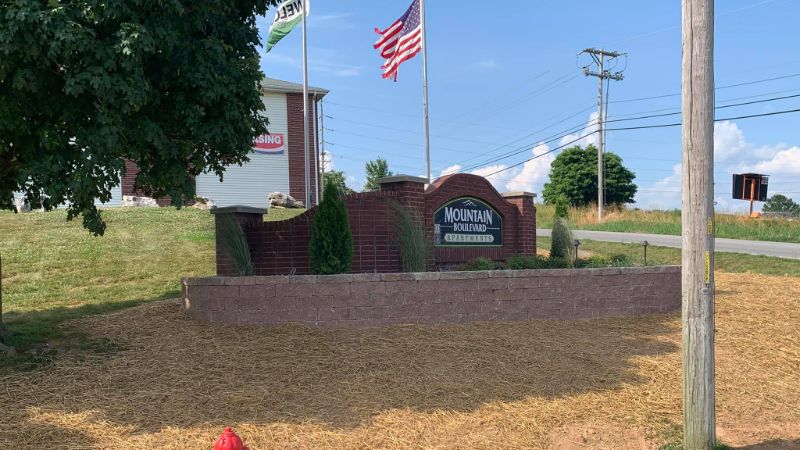
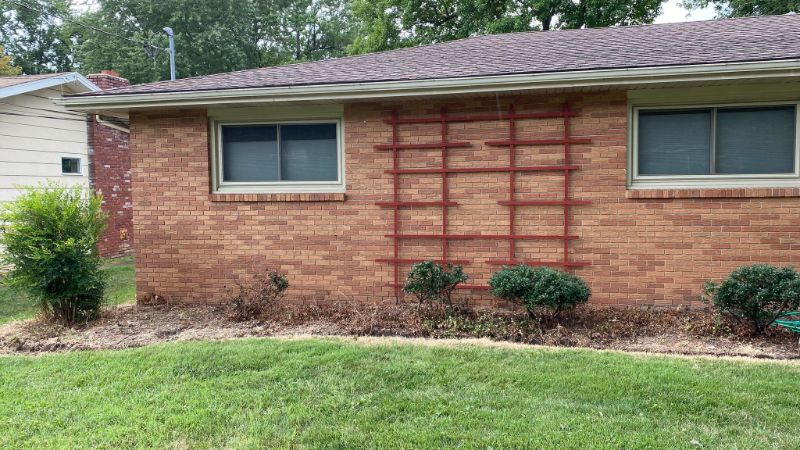
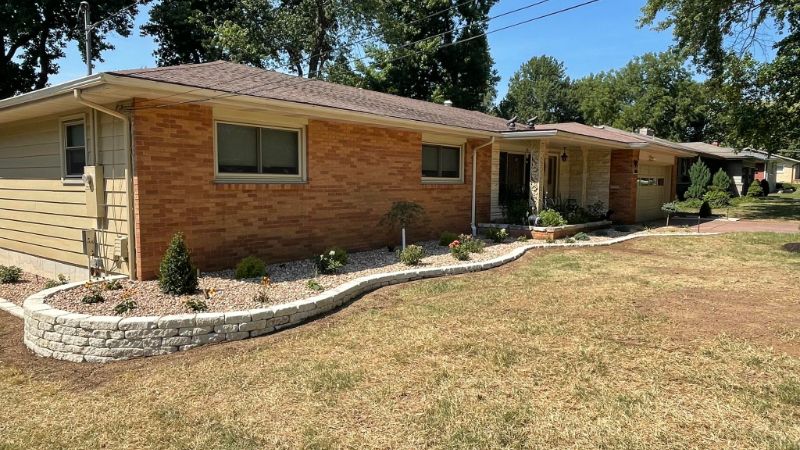
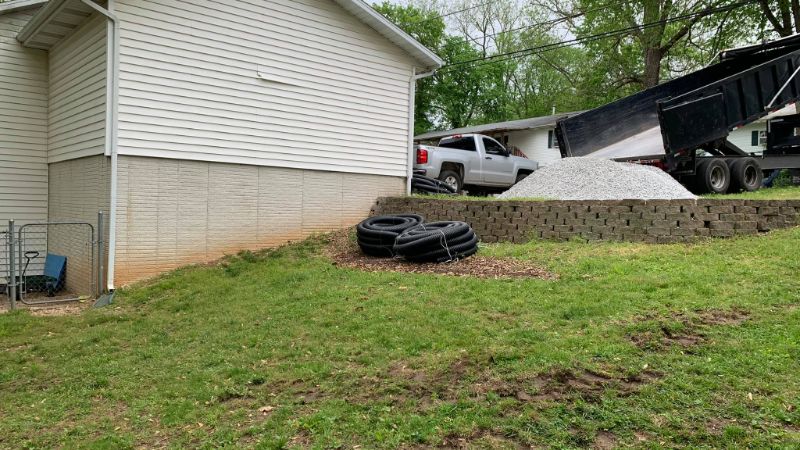
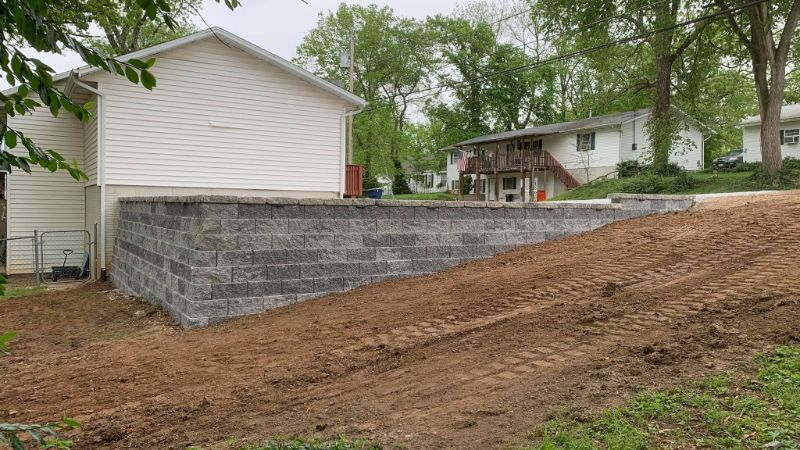
What Does It Cost To Build Retaining Walls?
Retaining walls can vary in price depending on the size, scope, length, height, and the materials chosen. Larger walls will need to be engineered which can add to the cost.
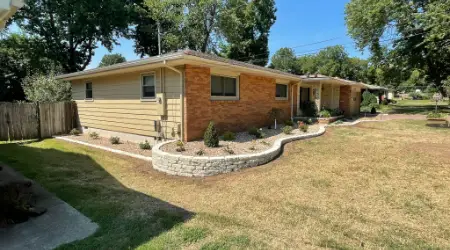
Smaller Garden Walls
$3000 - $5000
This would be for a small garden wall (under 2 feet high) to surround a small garden or to surround a small landscaping bed.
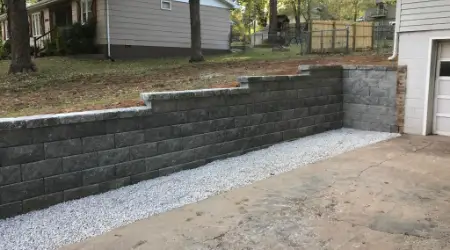
Medium Sized Walls
$10,000 - $25,000
This would be for a medium sized wall up to 4 feet high. Installed with drainage and geo-grid so it lasts.
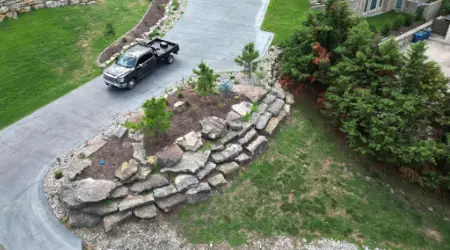
Large Retaining Walls
$30,000 - $100,000+
This would be a ballpark cost for a very large or tiered retaining wall or multiple wall with courses that are 4 feet or higher
Retaining Wall Projects Can Include
A beautiful retaining wall isn't just for looks. They have an important job to do. Whether we're building a brand new retaining wall or replacing an existing retaining wall that has failed, there are a number of things we do.
These prices do not include stairs. If you need stairs built within your retaining wall there will be an additional cost. These price ranges are for a typical wall built using readily available landscape block. There are a wide variety of styles and patterns available and we'll be able to provide you with a selection during our consultation. The price can vary significantly depending on the specific material you choose.
These prices are ball park figures to give you a rough idea as to what you should expect. Your particular project may vary depending on site accessibility, materials chosen, and the overall scope of work. If you need a firm price please request a consultation so we can view your potential project, listen to your ideas, and determine the actual scope of work required to complete your project. After our on-site consultation we'll be able to provide you with a firm estimate to complete your project.
Retaining Wall Repair Or Replacement
We specialize in rebuilding retaining walls that have failed and/or collapsed.
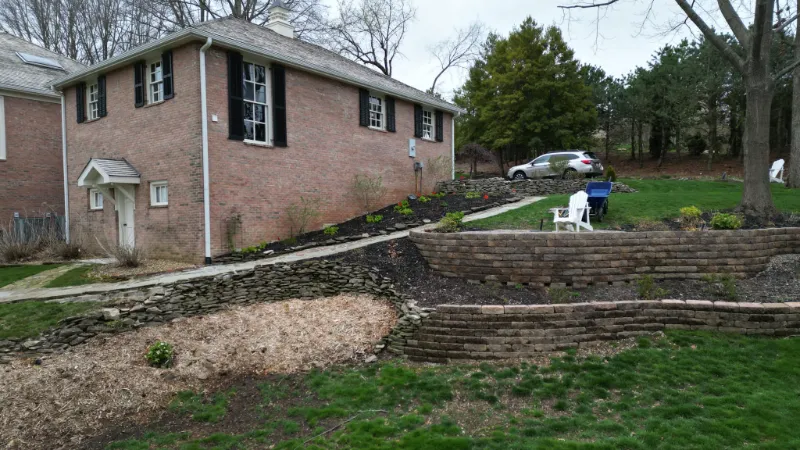
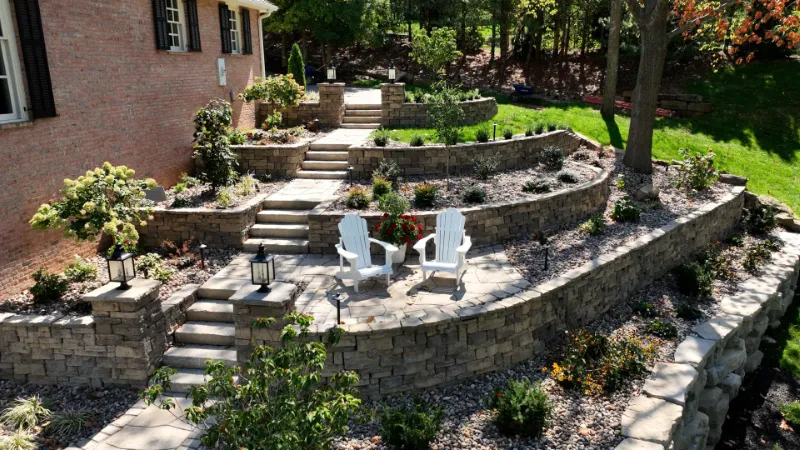
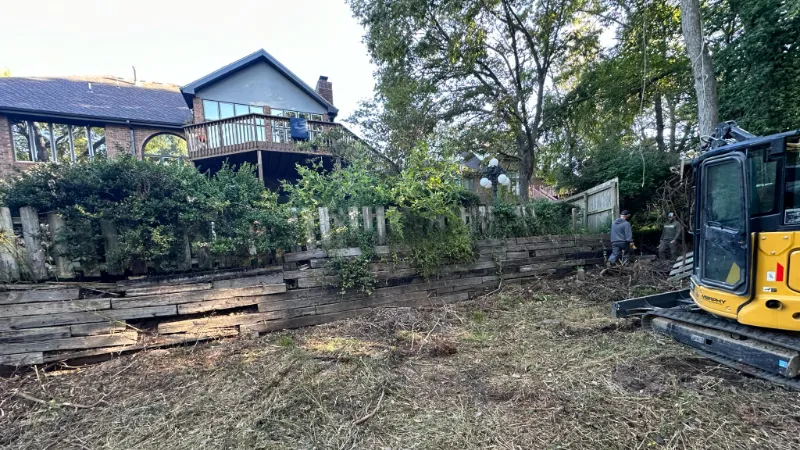
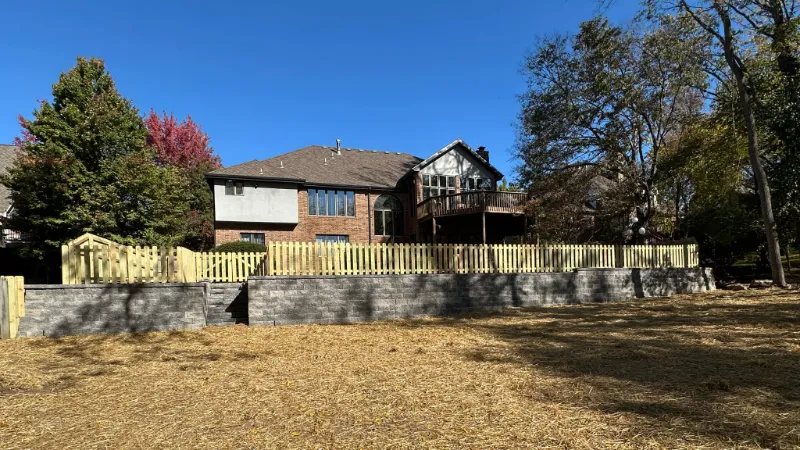
Retaining Wall Repairs
It's pretty common for us to get called out to repair an existing retaining wall that has collapsed or failed in some way. This could be an old wood retaining wall that is rotting away or a block wall that is bulging or on the verge of collapse if it has not collapsed already.
Typically we don't recommend "repairing" retaining walls. The wall has failed for a reason and that reason is typically poor construction or a poor choice of materials. When a wall has failed we will usually recommend tearing the wall out and replacing it. This would include demolition of the old wall, re-excavating the area to allow for proper base materials, installation of proper drainage, and proper backfill. Building it right is the more cost effective option in most situations.
Rebuilding Failed Retaining Walls
If your existing retaining wall has failed and needs to be replaced it's usually more cost effective to demolish the old wall, remove the materials, re-excavate the site, install a proper base, geo-grid if necessary, install drainage, and build the retaining wall properly.
We specialize in rebuilding retaining walls that have failed and would be happy to provide you with a consultation if you have a wall that you believe needs to be replaced.
Request Your Retaining Wall Consultation


